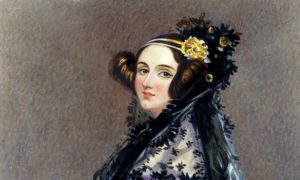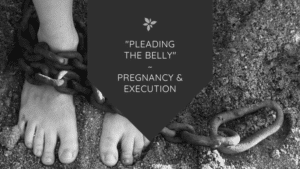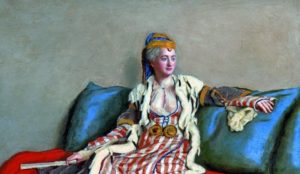Qiu Jin (1875–1907) was a Chinese writer & poet, a strong-willed feminist who is considered a national hero in China. Also called “Jianhu Nüxia” (Woman Knight of Mirror Lake”), she was executed after participating in a failed uprising against the Qing Dynasty.
Qiu Jin was born in 1875 to a family of the gentry, and received an excellent education as was typical for a young woman of her position. She always loved to write, and in this period of her life she wrote many joyful poems on subjects ranging from flowers and the four seasons to visiting historical places and domestic activities. She also wrote about female heroes and warriors from Chinese history, in inspiring poems about their strength, courage, and beauty. One of her poems begins “Don’t tell me women / are not the stuff of heroes”. Her poetry reflected her self-confidence and desire to become an excellent female writer as valued by traditional Chinese culture.
When Qiu Jin was 19, she obeyed her father and married the son of a wealthy merchant, against her own wishes. Qiu became extremely unhappy in her marriage. She wrote of her husband, “That person’s behavior is worse than an animal’s….He treats me as less than nothing.” and “When I think of him my hair bristles with anger, it’s absolutely unbearable.” Her previous self-confidence was shaken and her dreams of becoming a recognized poet were abandoned. Her poetry from this period of her life was full of self-doubt and loneliness.

During this period Qiu also began writing poetry about current events and the fate of China. After hearing of events such as the Boxer Rebellion and occupation of Beijing, she used her poetry, with literary allusion to heroines of the past, to express her conern about the fate of China and Chinese women. Qiu longed to serve her country but realized that that wasn’t possible as long as she was trapped in a conventional married life. Her marriage was an important catalyst in her development as a feminist and revolutionary.
In 1903, Qiu Jin moved with her husband to Beijing where he had purchased an official post. In Beijing, Qiu started reading feminist writings and became interested in women’s education.
Qiu Jin finally left her husband in 1903, leaving to study in Japan. She became vocal in her support for women’s rights, pressed for improved access to education for women in her journals and speech, and spoke out against the practice of foot-binding. Returning to China in 1905, she joined the Triads, an underground society who advocated for the overthrow of the Qing Dynasty, and other anti-Qing societies both Chinese and Japanese. She admired the Japanese for their disciplined military spirit and thought that it played an important role in the modernization of Japan.
“With all my heart I beseech and beg my two hundred million female compatriots to assume their responsibility as citizens. Arise! Arise! Chinese women, arise!”
In 1906 Qiu founded her own journal, “Zhongguo nubao” (Chinese women’s journal), which featured nationalist and feminist writings. Unlike traditional and other nationalist views that held women’s place as mothers and educators in a traditional family role, Qiu Jin saw the traditional family as oppressive to women.
Qiu was appointed head of the Datong school in the city of Shaoxing, Zhejiang Province, in 1907. The school was supposedly for sport teachers, but was actually used for the military training of revolutionaries. In the final years of her life, she frequently cross-dressed, wearing western-style men’s clothing, and practiced military drills and training with her students. She became well-known as a chivalrous woman for helping the poor and weak.
At this time, Qiu was working with her cousin Xu Xilin to unite and train fellow revolutionaries who also believed that China needed a western-style government. On July 6, 1907, Xu was caught and tortured for information before an uprising they had scheduled in Anqing in Angui Province. He was executed the next day.
Qiu Jin learned about her cousin’s death and the failed uprising a few days later. She was warned that officials would be coming for her at the Datong school, but she stayed anyway, writing to her sword sister Xu Yunhua that she was determined to die for the cause. On July 13, Qiu was arrested. Even after being tortured she refused to talk about her involvement in the scheduled uprising, but incriminating evidence was found at the school. On July 15, 1907, Qiu Jin was beheaded publicly in her home village of Shanyin, at the age of 31.
Shocked by the brutal execution of a woman, many Chinese were strengthened in their resentment of the Qing dynasty. Qiu Jin immediately became a national hero, and was the subject of poetry, drama, and numerous works of fiction. Much of her writing, including her poetry and letters to family and friends, was published after her death.
To this day, Qiu Jin is a symbol of women’s independence in China. She is now buried by Xī Hú (West Lake) in Hangzhou, where a statue of her marks her tomb.

Featured image of Qiu Jin courtesy Wikimedia Commons.
Recommended Reading
Keri is a blogger and digital marketing professional who founded Amazing Women In History in 2011.






Great post, exactly what I was searching for – a Chinese feminist. Thanks for the insightful and interesting post.
Thank you!!
It’s truly a great and useful piece of information.
I am glad that you simply shared this useful info with us.
Please keep us up to date like this. Thank you for
sharing.
Great post — thanks. I’ve recently been doing a lot of reading about this period in Chinese history, and unfortunately many of the western commentators leave Qiu Jin out of the mix. Hmmm… I wonder why.
I love this! I never knew about her ’till I read this. Tysm!! : )
It was short but a great source of information about Qiu.